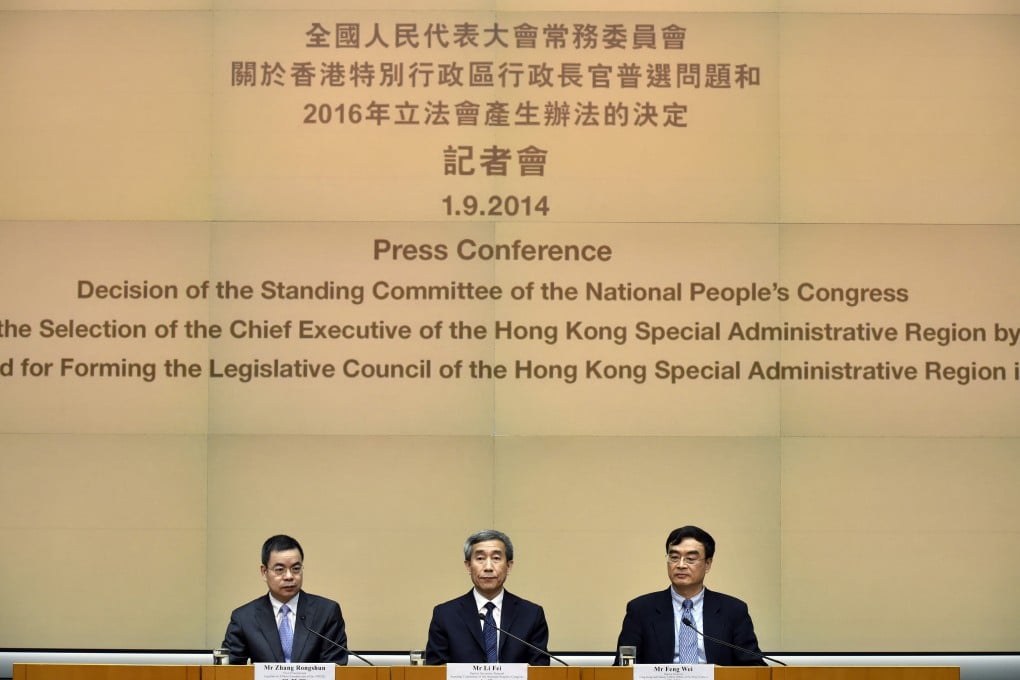Standing Committee decision on political reform violates the Basic Law
Surya Deva says its power of interpretation cannot be used as a façade to amend mini constitution

The central government's representatives have consistently reminded us that the election of the chief executive by universal suffrage in 2017 should be strictly in accordance with the Basic Law provisions. This was also the main reason Chief Executive Leung Chun-ying and his team sided with the anti-Occupy Central movement.
Amid such lecturing on the importance of legality and obedience to the supreme law, one would have expected the National People's Congress Standing Committee to take the Basic Law seriously.
But that was not to be. Its decision on political reform is unconstitutional because it violates the letter and spirit of the Basic Law on several counts.
The Standing Committee has the power to interpret the Basic Law. This constitutional power, however, cannot be used to act in unconstitutional ways: that is, to impose unreasonable restrictions on the right of Chinese citizens with permanent resident status in Hong Kong to contest elections.
Nor can the power of interpretation be used as a façade to amend in practice the Basic Law. The reason is very simple: Article 159 of the Basic Law provides that the NPC's power of amendment cannot "contravene the established basic policies of the People's Republic of China regarding Hong Kong". The latest decision of the Standing Committee is unsustainable because it tries to achieve indirectly what the committee cannot do directly.
A reason for rejecting civil nomination during debates has been that the nominating committee constituted under Article 45 has substantive powers. If that is the case, then no other body could usurp its powers. However, by specifying that the committee shall nominate two to three candidates, and that each candidate must be endorsed by more than half of the members of the nominating committee, the Standing Committee has in effect made the nominating committee merely a rubber stamp that has to act under Beijing's will.
Universal suffrage implies that people have reasonable choices at all stages. If everyone has one vote, but the vote can only be exercised to elect one of the two candidates handpicked by the central government, this would hardly be an election by universal suffrage.
